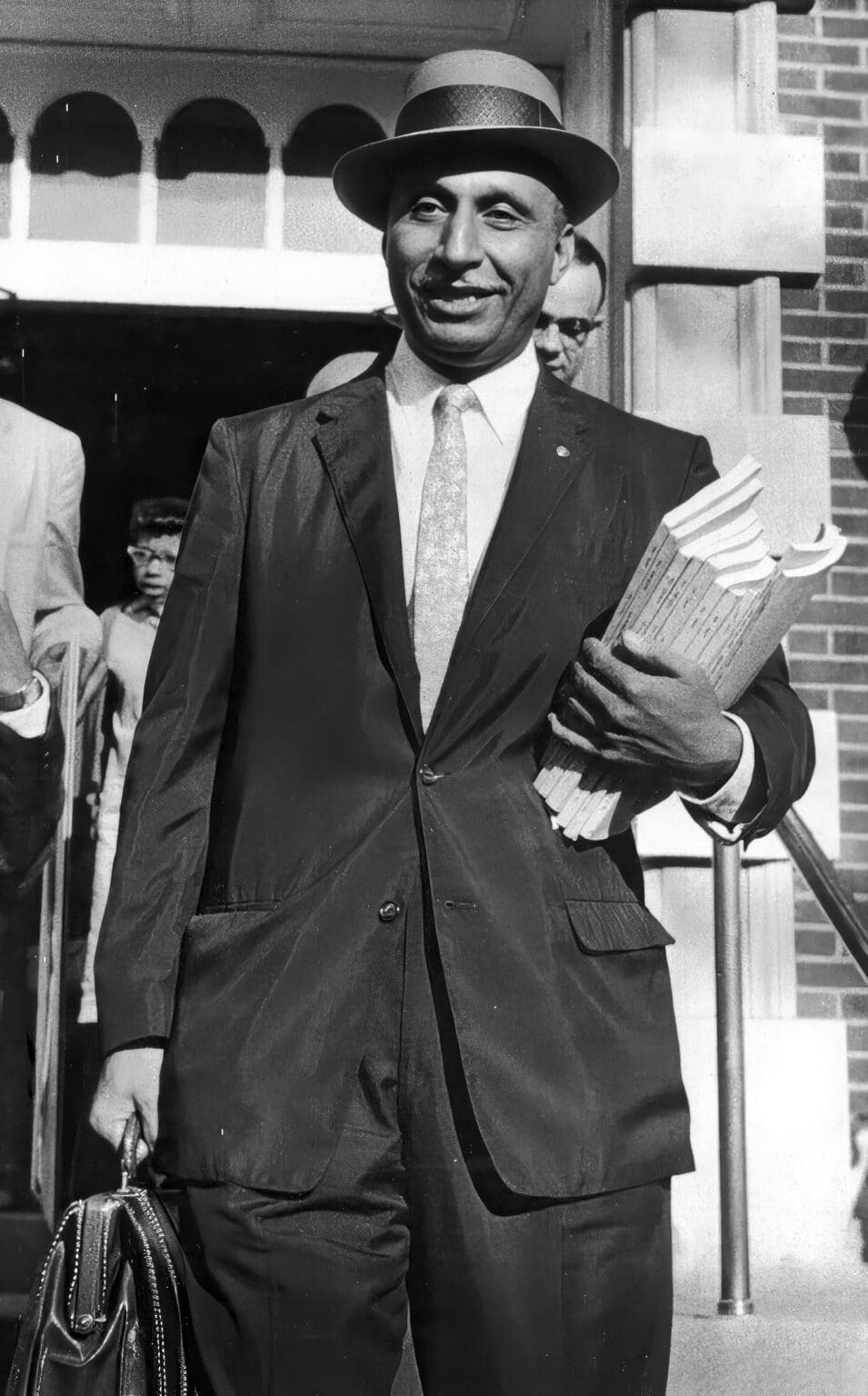RESOURCES
PEOPLE
Oliver W. Hill Sr.
1907-2007
Oliver W. Hill Sr. was a towering figure in the civil rights legal movement and a key player in the legal battle to end racial segregation in American public schools. Born in Richmond in 1907 and raised in both Washington, D.C., and Roanoke, Virginia, Hill vowed early in life to fight injustice. He graduated from Howard University School of Law in 1933, studying under civil rights legal strategist Charles Hamilton Houston and alongside future Supreme Court Justice Thurgood Marshall.
Hill and Marshall worked together on early cases challenging unequal teacher pay in Virginia, and by 1940, Marshall had entrusted Hill with overseeing all of the NAACP’s Virginia legal work. In 1941, Hill formed a Richmond-based law firm with Spottswood W. Robinson Ill and Martin A. Martin. Together, they spearheaded a county-by-county campaign to eliminate inequalities in public education. While these efforts produced several courtroom victories, they were costly and slow. In 1950, the NAACP shifted to a bold new strategy: directly attacking the constitutionality of segregation under the 14th Amendment.
This shift set the stage for Hill’s most influential case. In 1951, students at the all-Black R.R. Moton High School in Farmville, Prince Edward County, launched a strike to protest overcrowded, poorly maintained buildings and lack of basic educational resources. Led by 16-year-old Barbara Johns, the students reached out to the NAACP for help – not merely to demand equal facilities, but to end segregation entirely.
Hill and his partner Robinson traveled to Farmville to meet with the students, their families, and local community members. After ensuring that the students were united in demanding integration rather than equalization, Hill agreed to represent them. He carefully helped craft the legal argument in Davis v. County School Board of Prince Edward County, challenging the entire structure of segregated schooling. Hill’s involvement was not just legal; he inspired and empowered the students, guiding them through an emotionally and politically charged legal process.
The case was eventually consolidated with four others into the landmark 1954 Supreme Court case Brown v. Board of Education, in which the Court declared that “separate but equal” public schools were unconstitutional. Hill’s skilled litigation and mentorship of the student plaintiffs played a critical role in this victory, which reshaped American education and civil rights.
In his personal life, Hill was known for his warmth, resilience, and devotion to family. He married Beresenia Walker in 1934, and together they had one son, Oliver W. Hill Jr., who became a noted psychologist and professor. Hill was also a veteran, having served as a U.S. Army officer during World War II. Despite receiving death threats and constant intimidation for his civil rights work, he remained committed to nonviolence and legal justice throughout his career.
